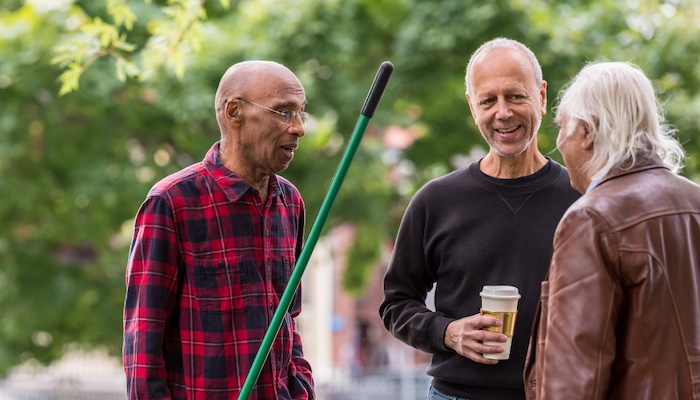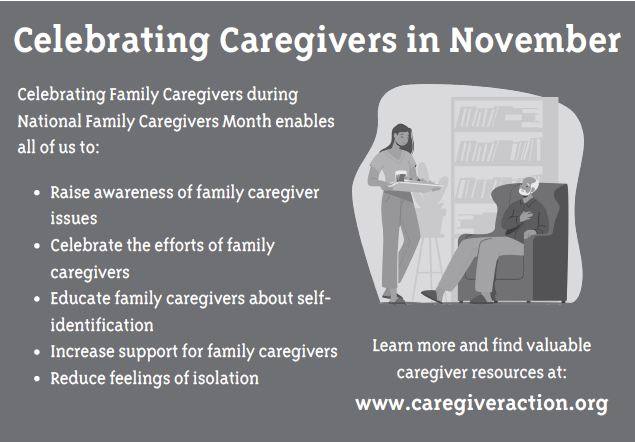
Alzheimer’s Disease and Wandering
One of the most troubling aspects of Alzheimer’s (AD) is the person’s tendency to wander away from home. There is no way to predict who will wander or when it might happen. However, some of the reasons can be pain or restlessness, side effects of medication, a noisy or stressful environment, an attempt to meet basic needs (finding the toilet) or trying to meet former obligations to job or family.
Wandering may also be a natural release for boredom or agitation. If this is the reason, wandering within a safe confined space may be encouraged. When faced with episodes of wandering, try to find their cause.

Reduce the Chance of Wandering
You cannot always prevent wandering, but you can do many things to reduce the chances it will happen.
- Provide opportunities for exercise. Exercise might include singing, rhythmic movements, walking at an indoor mall, or dancing. Develop areas indoors and outdoors where the person can explore and wander independently and safely.
- Reduce noise and confusion, particularly at mealtimes.
- Clearly label bathrooms, living rooms, and bedrooms with large letters or pictures. Try attaching a yellow strip of plastic, symbolizing caution, across doors to prevent wanderers from entering or leaving the room. Place a large NO on doors.
- Camouflage doors by painting exit doors the same color as the walls or cover doors with curtains. Place a full-length mirror on doors to the outside. Some people will turn around when they see the image, not recognizing themselves.
- Install electronic alarms or chimes on windows and doors.
- Monitor medication for changes, especially anti-depressants or anti-anxiety drugs.
- Determine whether wandering is related to previous lifestyles. Find out how the person coped with change and stress and learn about patterns of physical exercise and lifetime habits, both at home and at work. (Did the person always react to an argument by going out and walking for an hour? Did he always jog in the afternoon?) Have a plan of action if wandering occurs.
Source: The Comfort of Home for Alzheimer’s Disease: A Guide for Caregivers
Note: Alzheimer’s disease is the 6th leading cause of death among US adults.
Source: CDC
Safe Return Program
If you are the authorized caregiver or a family member, you can register the person in your care with the Alzheimer’s Association’s Safe Return Program. The Alzheimer’s Association, in collaboration with MedicAlert® Foundation, provides membership plans with 24/7 Wandering Support. Call 800-432-5378 or visit the Alzheimer’s Association website for details.
Getting started is easy
Choose your medical ID and engrave it with the most critical information and select a membership plan that best suits your needs. Enjoy peace of mind knowing you or your loved one are protected with MedicAlert. Products are mailed in six to eight weeks. Having the identifying information and a picture stored in a national database will increase chances of finding someone even if they refuse to wear the bracelet.
Call the Safe Return Hotline at 800-572-1122 as soon as possible when the registrant moves or goes on vacation so Safe Return always has up-to-date information.
Preparing for a Safe Return
Prevention is the best cure, but if you can’t prevent your loved one from wandering, here is a checklist of things that will make it easier for them to be found.
- Note what the person is wearing each day.
- Have photos available to give to the police and searchers.
- Have information on age, height, weight, hair and eye color, physical disabilities, and other identifying features.
- Know if the person has any medical problems or takes medication.
- Note the person’s favorite places to go, “hang outs” and familiar sites.
- Put bells on the doors to alert you when they are opened.
- Be aware of nearby hazards such as bodies of water, dense foliage, construction sites, high cliffs, steep stairways, high balconies, busy roads, fences, and gates.
- Know if the person can use a bus or a taxi.
- Keep unwashed clothing or wipe clean cotton balls on the person’s face or arm. Put the balls in individual Ziploc bags and store them in the freezer. Tracking dogs can use them to pick up a scent.
When the missing person is found, call the police and the Safe Return program (800-572-1122).
Source: Alzheimer’s Association.
Taking Care of Yourself-Poetry Relaxes
When caring for a person with dementia it can be difficult to find ways to relax. Poetry can be powerful therapy for people with dementia as well as relaxing for the caregiver. Tapping into the rhythm and rhymes of poems can make people laugh, dance or cry.
Try your favorite poem or consider:
- The Owl and the Pussy Cat – Edward Lear
- The Raven – Edgar Allen Poe
- How Do I Love Thee – Elizabeth Barrett Browning
- Rock Me to Sleep – Elizabeth Akers Allen
- Jabberwocky—Lewis Carroll
- Jeanie with the Light Brown Hair—Stephen Foster
Source: www.alzpoetry.com; Alzheimer’s Foundation of America’s CareAdvantage Spring 2006

Memory Care-Inform the Neighbors
Contact the people living in the immediate vicinity and ask them to alert you if they see the person in your care walking around unsupervised to contact you. Show them a photo of the person. It is important to make people aware so you create a huge safety net for the person with Alzheimer’s.
Safety Tips – What Happens When People With Ad Wander
Of those with Alzheimer’s or a related dementia, 59% will get lost, usually while doing normal activities.
- Of those not located within 24 hours of the last time seen, 46% may die, usually succumbing to cold and thirst.
- Individuals with Alzheimer’s usually do not cry out for help or respond to shouts; they leave few physical clues.
- They usually travel less than one-tenth of a mile.
- They may try to travel to a former residence, work place, or city.
- They are usually found a short distance from a road or an open field; 63% are found in a creek or drainage area or caught in briars or bushes.
- Most wandering incidents occur during normal daily activities (while trying to locate a restroom, gift shop, recreation room, etc.).
Source: The Alzheimer’s Association and The Comfort of Home for Alzheimer’s Disease: A Guide for Caregivers
